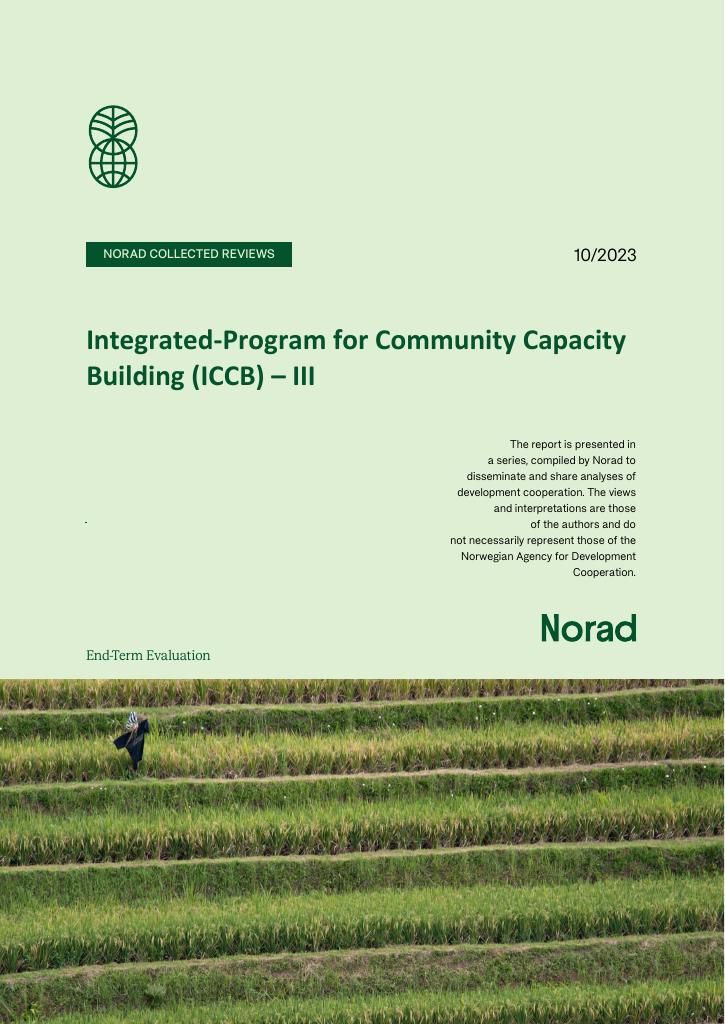Evaluering
Integrated-Program for Community Capacity Building (ICCB) – III
Northern Development Foundation-NDF is a Christian non-profit, non-political, non-sectarian community development organization that has been working in Bangladesh since 1986. Founded upon Christian values and God's universal love for all mankind based, NDF has been committed to serving the most disadvantaged people in the community without any discrimination because of their religion, color, race, caste, or ideology. From the very beginning, NDF’s primary focus has been on the social, economic, and cultural development of the most vulnerable people, particularly, the indigenous communities living in the northern regions of Bangladesh. The people in the project area have been facing a variety of problems such as land grabbing, false cases on land-related issues, land disputes, and lack of access to government services. There has been a gap in understanding their rights and entitlements which has often led to discrimination and injustice in the form of a lack of access to services, fair wages, and livelihood opportunities. The project has contributed in most of these areas. The project has contributed to building community awareness on land rights and land-related documentation, particularly, what documents they should keep and how to preserve key documents that could safeguard their land and uphold their rights. The Integrated Program for Community Capacity Building (ICCB) is the flagship project of NDF which was started in 2008 to promote social, economic, and legal empowerment of the indigenous and marginalized people by promoting civil, political, social, and cultural rights through civil societies and leadership of indigenous people, providing legal support for land-related issues and also by creating employment opportunities through skill and leadership development and building linkage with government departments. Since its inception, the project has passed through two five-year phases from 2008-2017 and the present phase is anticipating that there would be a greater sense of ownership and capacity enhancement toward sustainability as more groups and federations take more responsibilities by themselves which would contribute to their economic, social and cultural empowerment. The project further anticipated women in leadership roles and there is gender equality at different stages of individual and social life. Normisjon is NDF’s only resource-sharing partner since the beginning. ICCB is the flagship project of NDF which covers 9 sub-districts of 2 northern districts-Dinajpur and Gaibanda. The third phase of the ICCB project is coming to an end in December 2022. The overall purpose of the end-term evaluation of the ICCB project is to assess the result of the project at the outcome and impact level, learnings from the project, and get indications for the next course of action in the project area and beyond. More specifically, the study is focusing on the following set of objectives: a. To assess, verify and identify the Results/Achievement of the project at the outcome/impact level. b. To evaluate according to the empowerment assessment tool (EAT). c. To assess the effectiveness and sustainability of the project (i.e. are the project activities adequate to realize the objectives? What degree can the project continue after the after donor support has ended). d. To assess how has the project contributed to learning. e. To come up with Recommendations in ways to improve the new project design, with special focus on the main thematic area.
Publisert
Eier
Norad
Språk
norsk (bokmål)
Kilde
Kilde
ISBN
9788283691542
